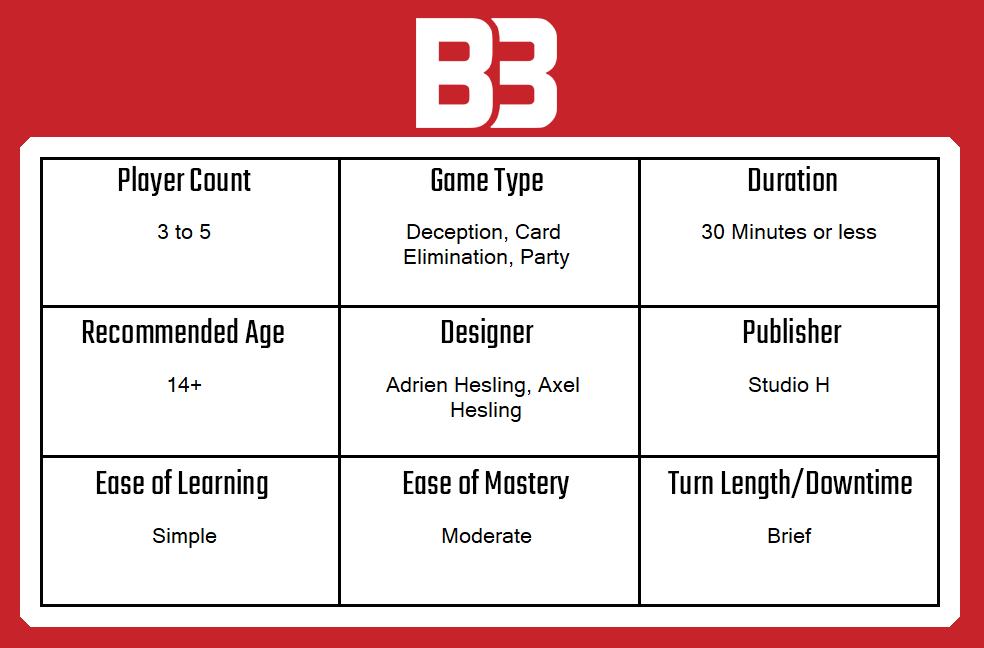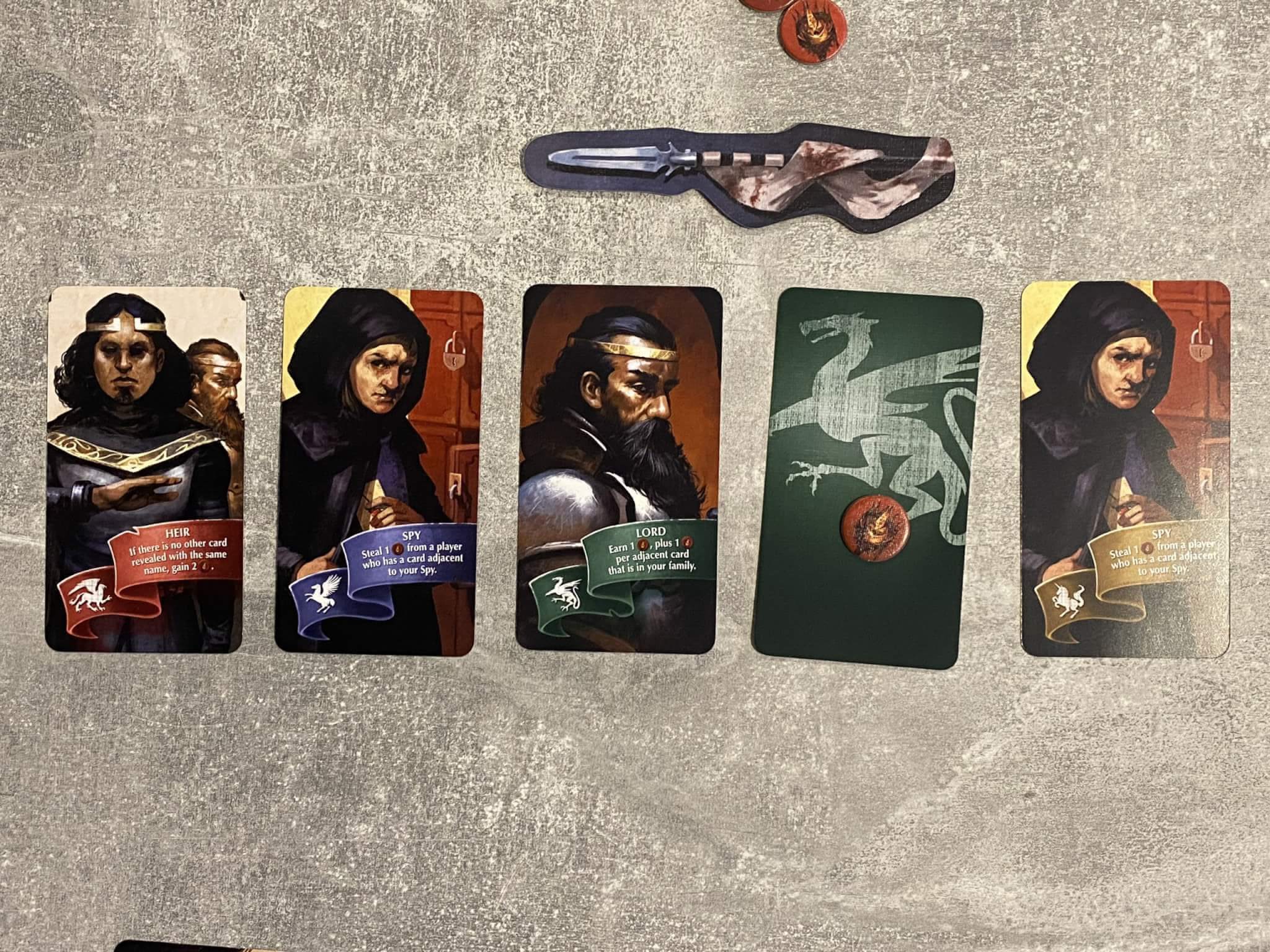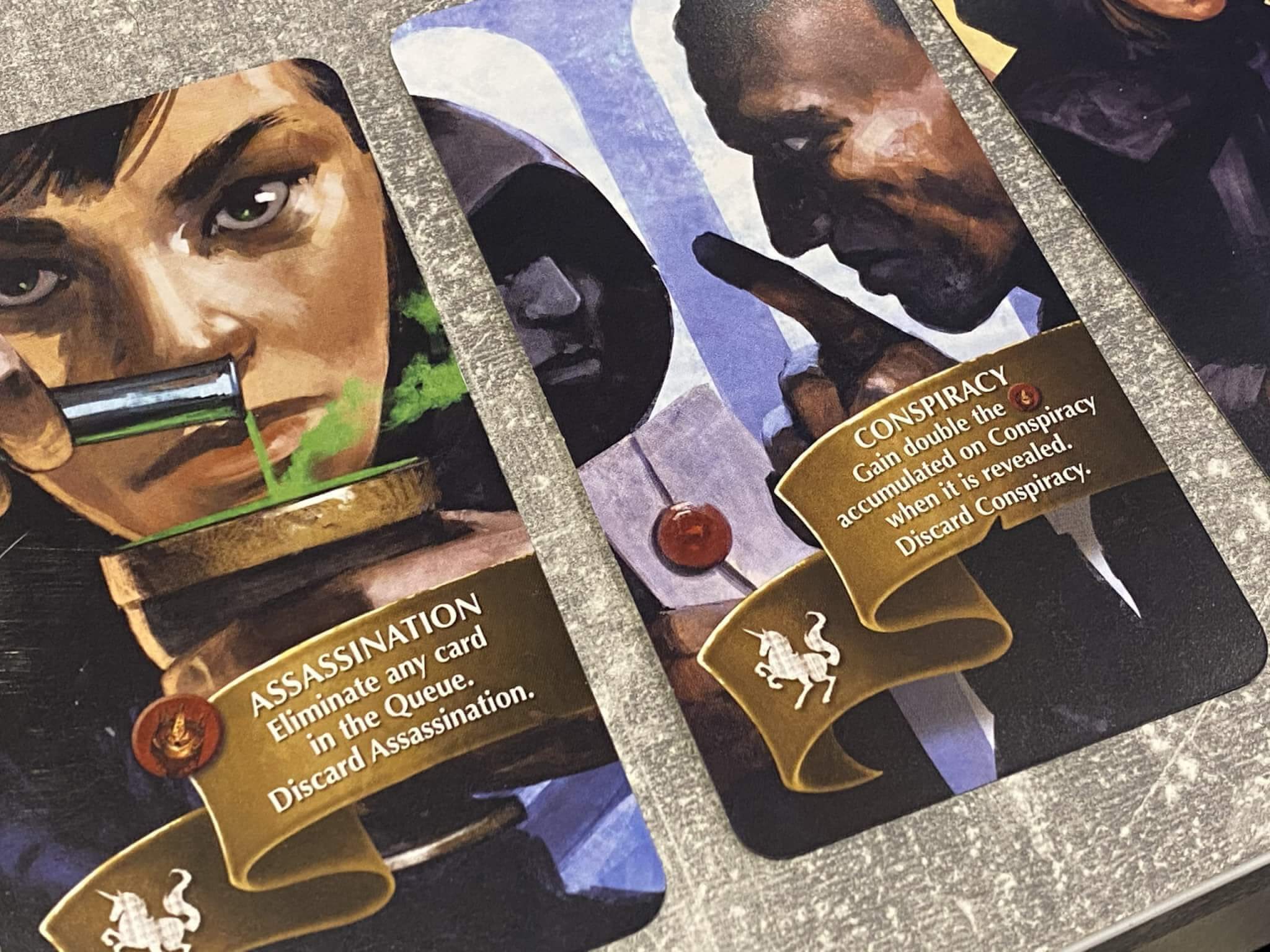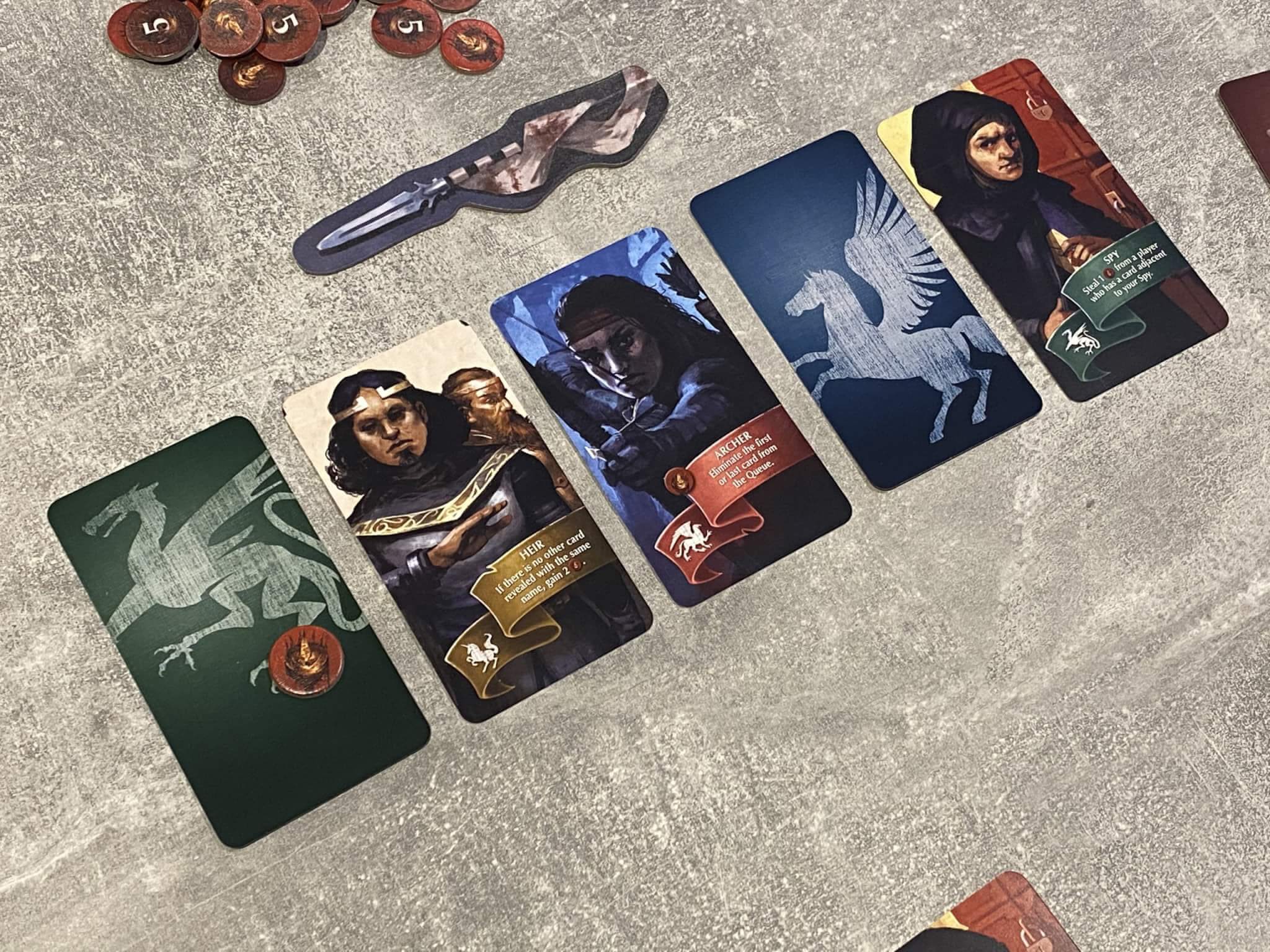Oriflamme is a deadly card game that will spoil your party

I don’t often play what I would consider to be party games, and as a rule, I discount them on the basis that they lack the decisions and depth that I seek. Oriflamme rewrites the rulebook thanks to its exciting, often outright mean gameplay and simple but rewarding mechanics.
OK, so it’s not really a party game, but Oriflamme is played with between three and five players, and it is similar in weight and style to games like Coup and High Society but with a little more weight. The basic premise is simple — the players will play six rounds of placing (and sometimes revealing) cards, and then count up their influence at the end. Highest influence wins.
Obviously there are a few steps to go through between the beginning and the end, but Oriflamme uses a super simple turn structure around which it hangs some challenging and occasionally awkward decisions. The first thing players do (beginning with whoever is holding the starting player token) is place one card at either end of the row of cards already on the table.

At the beginning of the first turn, this can be anywhere (because there’ll be no cards on the table) but as the rounds roll on, cards will often be left on the table, and the placement of your next card (and what it says on it) really matters. During the placement phase, any card placed in this way will be positioned face down, and every player must place one exactly one card.
Next, players will assess the cards that are now lined up on the table one by one, beginning with the one at the end of the row indicated by the direction of a specific marker placed at the beginning of the game. When assessing the cards, the player who’s card it is will decide whether to leave it face down (in which case an influence is placed on it) or to flip it face-up, taking any influence and the action shown on the card.
The actions on any existing face-up cards are also resolved, and these actions vary quite a bit depending on the card. Some abilities such as Ambush or Assassin resolve immediately when turned face up and are then removed, whilst some, like Archer or Heir remain in the row until another card effect removes them.

Each ability is different, but all must be used carefully and there are good and bad times to reveal cards. The Ambush card, for example, only flips face up in response to an enemy card targeting it — at which point it destroys that card instead. A Soldier can destroy a card to either side of it, whilst an Archer targets cards at either end of the line. Heir’s and Spy’s can generate influence or steal it from neighbours respectively.
Two wrinkles that make these mechanics even more interesting are that each player will receive the same deck of ten cards at the beginning of the game, but of these, three must be removed at random and excluded from the game. The second aspect is that when a card is discarded, it is placed face-up in front of its owner, meaning that all players know which cards have been used, but not exactly what might come next.
Of course, because most of these abilities are all about interacting with your opponents and their cards, Oriflamme is at least a highly competitive game, and sometimes it’s just downright nasty. Cards with two or more influence on them most definitely should (and will) be targeted by others, whilst mini grudges will form between players who have repeatedly set each other’s plans back.

The good news is that all cards are broadly equivalent in strength, and because there are six rounds and seven cards, you’ll always end the game with one to spare. This means that even on the last turn, players have choice — albeit limited by that stage of the game. Runaway leaders are very rare, and scores tend to be pretty low, with three, four and five player count games remaining tight right to the end.
The components themselves are very straightforward, with each player having a deck of ten nicely painted and clearly labelled cards and one player aid that lists all card abilities. This player aid is a nice touch that generally prevents players needing to flip up and check their face down cards (unless they forget the actual card name). The instruction manual is brief and simple enough, whilst the influence tokens, starting player marker and direction marker are all decent enough quality.
And in terms of what Oriflamme is, there’s not much more to say, except perhaps that it has rapidly become the only game of it’s kind that I’ll play. If I’m warming up a group of players for a bigger game, or I have a couple of friends around who like lighter games, I go straight for Oriflamme.

The only real exception to this is when I’m playing with people who genuinely don’t enjoy the high level of interaction that Oriflamme involves. Not everyone wants to be as mean as games like this demand, and so they’ll either hold back (and probably lose) or just enjoy themselves a lot less than I’d like. Despite this criticism and perhaps the fact that Oriflamme comes in a silly sliding box that the cards constantly fall out of, this game is basically an essential purchase.
You can purchase Oriflamme on Amazon.
Love board games? Check out our list of the top board games we’ve reviewed.
Comments are closed.